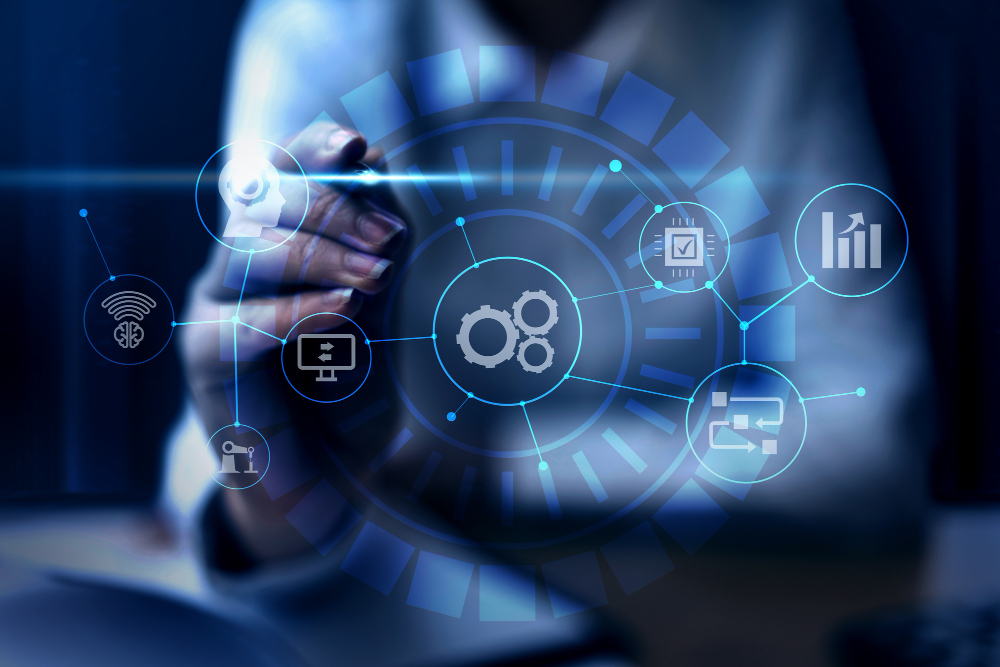Digitization is evolving with the time user is spending in digital/virtual world. Now it is not restricted to limited tech companies working in the digital niche. Digital innovation as a process of evolution is touching every industry throughout the world irrespective of its niche.
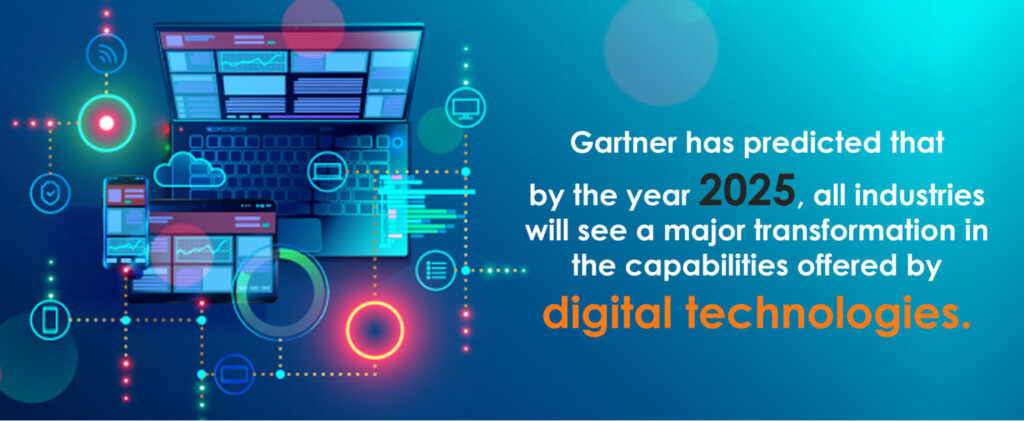
Digital innovation post-COVID-19 era has forced leaders and tech giants around the world to rethink daily lives, from school to work to entertainment and accordingly working on security compliance to secure user privacy.
Travel bans, school shutdown, and maintaining a safe distance to counter the spread of the virus forced many to hide behind digital tools to achieve a semblance of normality. It’s been imperative to rewrite the rulebook for business. Organizations are challenged to rethink the digital transformation of our schools, workplace, grocery shopping experience, etc.
Even organizations that are considered well established are facing new threats at an unprecedented rate from competitors never encountered before.
We have put down five of the biggest trends shaping digital innovation today and how enterprises are evolving to remain competitive.
With the rapid pace of digital transformation services and the complexities it brings, seeking guidance from digital strategy consulting experts can provide invaluable insights and strategies to navigate these changes effectively. These consulting services help organizations develop and implement digital strategies tailored to their specific goals and challenges, ensuring they stay ahead in today’s digital landscape.
1. RPA (Robotic Process Automation) and IPA (Intelligent Process Automation)
Exponential digital innovation has given rise to an intelligent and competitive workforce, also referred to as Connected Industrial Workforce cited by Accenture. This Machine workforce has kept companies moving during the pandemic, with the workplace being shut in the immediate effect of lockdown. When employees could not be physically present and work in the office/industrial spaces, RPA (Robotic Process Automation) and IPA (Intelligent Process Automation) saved companies and kept the ball moving.
The Machine Workforce is executing work beyond human cognitive capabilities. Machines are discovering patterns and learning things on their own. The traditional structure of Human Resource management that had 9 to 5 position is dying out with employees working remotely. This has also forced team structures to evolve as a result. In other words, COVID-19 pandemic has given rise to a digitally-enabled independent human workforce.
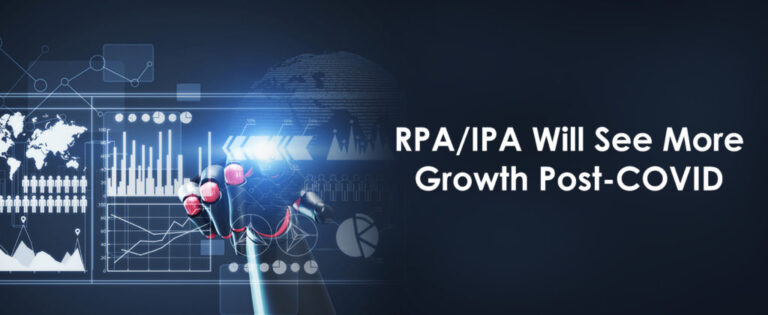
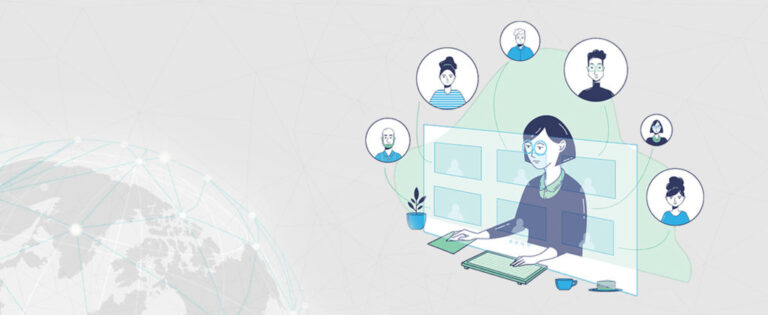
Digital platforms are helping human workforce to scale and become more efficient. From outsourcing work to ad-hoc teams, from a distributed work model to a platform model, from microwork to macro work, and much more, each of these will be difficult transitions for human workforce to undergo.
Book a Free Consultation with Digital Growth Experts at Workswide Consulting
2. Voice-Activated Automation
It allows great flexibility and at the same time, it enhances workplace productivity. Amazon Alexa and Google Play have become household staples. Simultaneously, voice-activated automation is set to become a trend in the workplace as soon as the offices are set to work at full capacity in post-Covid times.
Voice-activated automation will give businesses autonomy to free up their hands reserved by mechanical work to embrace multitasking. From a simple task of turning off light to complex tasks of sending out an email, voice-activated automation allows the flexibility of multitasking for busy employees. It is convenient, easy to use and most importantly, saves time. It can be a bit complex in the initial stage of adoption, but it promises an excellent opportunity as digital innovation continues to evolve.
3. AI (Artificial Intelligence) Solutions for IoT (Internet of Things) Adoption
The Internet of Things is said to be the physical manifestation of digital transformation. It is already ubiquitous — from food delivery to smart healthcare to public transportation. It is making home and offices smarter specifically around monitoring energy usage, this has also pushed us to consume it responsibly. Further, devices in the IoT ecosystem capture and transmit data; AI algorithms are being used to analyze this data and respond to it. This process needs to be correctly configured. AI and IoT together make the system more efficient
The future is near where we would get a weekly report of the energy consumed by all our appliances and the cost to run them. Effective monitoring will not only reduce energy consumption and cost but will also reduce the amount of fossil fuels burnt to produce electricity. This will have an overall impact on climate change.
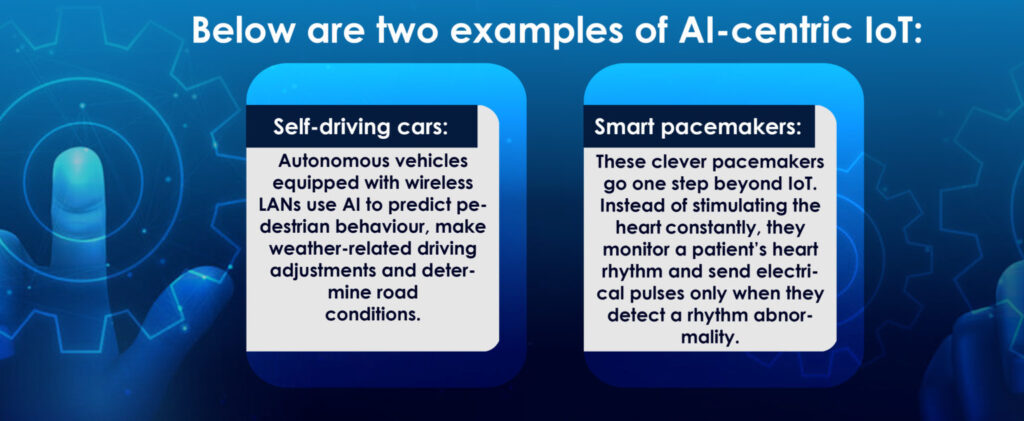
Here are more examples for AI integrated IoT adoption: Regular security cameras morph into smart security cameras; standard pacemakers evolve into connected pacemakers; normal contact lenses become sensor-embedded smart contact lenses.
4. Digital Process Automation
Digital Process Automation (DPA) is a step into the future; it is a descendant of traditional Business Process Automation (BPA). It is the first thing that the Companies evolving via digital transformation adopt and implement.
Why?
It is efficient in terms of accuracy, smooth workflow and requires minimum to zero human intervention. The more repetitive tasks are automated, the more time on hands human resource gain. The businesses are automating email campaigns, marketing reports, payments, support tickets, supply chain tasks, etc.
Digital Process Automation is a holistic business strategy. It spares human resources from the boredom of repetitive tasks and customers with the streamlined structure of business operations.
5. AI Solutions for Automation
Machine Learning and Artificial Intelligence have a major impact on how professionals interact with business applications. Machine Learning is based on algorithms that can learn from data without relying on rules-based programming. Processes such as inventory management, audit, fraud detection are being transformed.
Artificial intelligence has reduced human intervention — hence, AI in itself is a form of automation. Further, Digital Process Automation (DPA) and Artificial Intelligence (AI) are compatible technologies. Businesses have been gathering information via AI to decide what processes can be automated and enhancing the output. DPA and AI together have birthed Intelligent Process Automation (IPA). IPA is an emerging field in technology that ranges from virtual robotics to being used in cognitive software development.
IPA applications include:
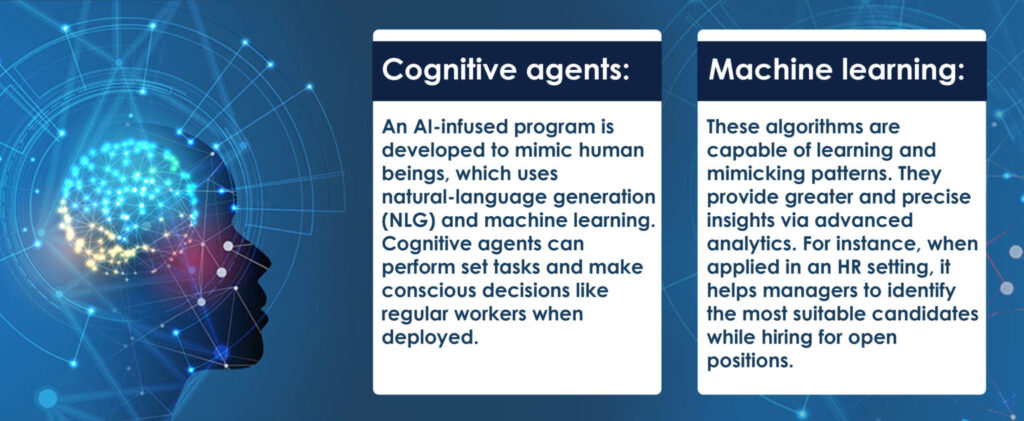
Conclusion:
As we move from paper to digital sheets to embark on digital transformation, the major question big companies are speculating whether they are on the right path, and doing the right thing. Digital transformation and process automation have transcended traditional departmental roles like marketing, sales, and customer service. It has introduced new ways of engaging with customers with digitization on our side. Building a future-proof 21st-century business depends on thinking, planning, and building digitally to stay agile amidst disruptive innovation.
Worxwide Consulting is a growth consulting firms that helps companies drive digital growth through Sales Transformation. We provide actionable strategies – Sales automation, sales enablement, and sales acceleration – to fuel your business expansion and success. Worxwide is based out of the US, UK, and India, offering bid consulting, sales transformation, user experience, and customer experience design services enables agile innovation. We cater to the organization’s long-term vision to make it more efficient and productive.
Contact us Today to schedule a call with our Digital Growth Experts.
tx, USA

London, UK

India


